-
 +1 +1
+1 +1Fate of iconic, and endangered, Brazilwood pits musical tradition against conservation
The tree with deep red wood and yellow flowers that gave Brazil its name is disappearing. Native to the Atlantic Rainforest and exclusive to Brazilian soil, the number of Paubrasilia echinata still standing today has fallen to something around 10,000 trees spaced out along the coast between Rio de Janeiro and Rio Grande do Norte […]
-
 +23 +1
+23 +1Attenborough's Life Journey | PBS NATURE Documentary
-
 +1 +1
+1 +1Nevada lithium mine approved despite possible harm to endangered wildflower
Advocates vow to sue, saying plan, crucial to Biden’s clean energy agenda, will drive Tiehm’s buckwheat to extinction
-
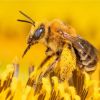 +41 +1
+41 +160% of Earth's Food Crops Aren't Being Visited by Enough Pollinators
Some of our favorite food crops around the world aren't reaching their full potential because of fewer visits from the insects that pollinate them, a new study has found.
-
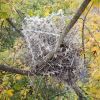 +37 +1
+37 +1Crows and Magpies Snatch Anti-Bird Spikes to Build Their Nests
Birds in Europe are prying up the metal barbs, meant to repel them from roosting on buildings, and using the devices as nesting material
-
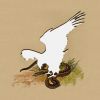 +27 +1
+27 +1Should We Kill Some Wild Creatures to Protect Others?
Two new books take up the ethics of killing some animals to protect others. By Elizabeth Kolbert
-
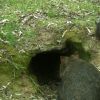 +31 +1
+31 +1Cameras reveal wombat burrows can be safe havens after fire and waterholes after rain
Are wombats the accidental heroes of the Australian bush? After the Black Summer bushfires, we set up 56 cameras to capture animal activity in areas with and without wombat burrows to find out.
-
 +16 +1
+16 +1Study: Conservation actions are effective at halting and reversing biodiversity loss
A major international study has shown that conservation efforts to reduce biodiversity loss are working, with two out of every three measures making a positive impact.
-
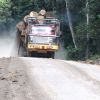 +17 +1
+17 +1Roads of destruction: we found vast numbers of illegal ‘ghost roads’ used to crack open pristine rainforest
What harm can a road do? Plenty. Once built, illegal roads let loggers, miners, poachers and landgrabbers into the jungle, and the felling begins.
-
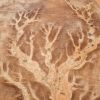 +9 +1
+9 +1Australia’s threatened plant and animal numbers have been halved in just 2 decades
An annual, independent assessment of Australia’s environment has found several silver linings amid longer-term declines exacerbated by climate change.
-
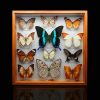 +29 +1
+29 +1The Hidden Butterfly Trade
How the lucrative market could spark conservation.
-
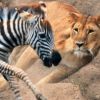 +25 +1
+25 +1Turns Out There's One Animal Powerful Enough to Mess With Lions' Feeding Habits
In a stark example of how everything on our living planet is interconnected, one species of tiny, invasive insects has reduced lions' abilities to feast on zebras.
-
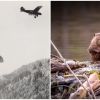 +16 +1
+16 +1Why NASA Is Watching Where Idaho’s Parachuting Beavers Landed
The mini-paratroopers have a new role to play today.
-
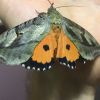 +46 +1
+46 +1We thought we’d find 200 species living in our house and yard. We were very wrong
An ecologist, a mathematician and a taxonomist were locked down together in a suburban house. So they counted all the species of plants and animals they could find.
-
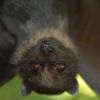 +33 +1
+33 +121 species removed from endangered list due to extinction, U.S. wildlife officials say
The Fish and Wildlife Service said 21 species, including a mammal, birds, fish and mussels, are being removed from the endangered list because they're now considered extinct.
-
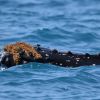 +54 +1
+54 +1Expert Explains Why Whales Often Wear Hats Made of Seaweed
If a whale comes across a patch of kelp, it may well start playing with it. This practice may also be useful to rid whales of unwanted passengers.
-
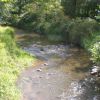 +20 +1
+20 +1Rivers are rapidly warming, losing oxygen: Aquatic life at risk, study finds
Rivers are warming and losing oxygen faster than oceans, according to a Penn State-led study published in the journal Nature Climate Change. The study shows that of nearly 800 rivers, warming occurred in 87% and oxygen loss occurred in 70%.
-
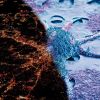 +25 +1
+25 +1Are humans a cancer on the planet? A physician argues that civilization is truly carcinogenic
In "Homo Ecophagus," Dr. Warren Hern gives human activity a deadly diagnosis
-
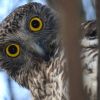 +35 +1
+35 +1Spooky, stealthy night hunters: revealing the wonderful otherworld of owls
Owls are masterpieces of adaption, having honed their expertise as night predators over millions of years. Two new books delve into the world of these birds and the battle to protect certain species.
-
 +4 +1
+4 +1A worm has been revived after 46,000 years in the Siberian permafrost
Scientists have revived a worm that was frozen 46,000 years ago — at a time when woolly mammoths, sabre-toothed tigers and giant elks still roamed the Earth.
Submit a link
Start a discussion




















